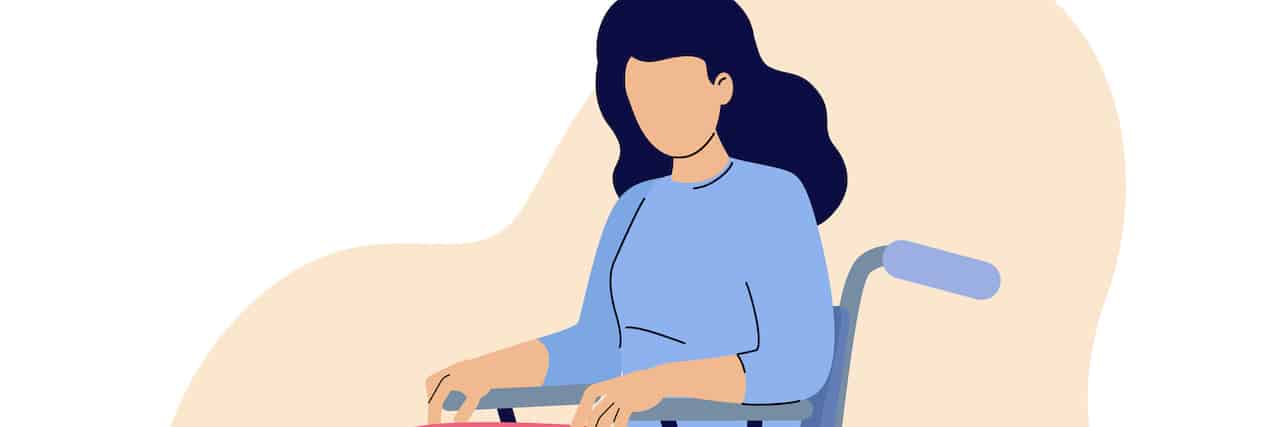When you live under the poverty line, any new source of income is a cause for celebration, right? Not necessarily. If you rely on government assistance, income from other sources may result in that assistance being clawed back, which often ends up rendering the new income less helpful, and even not helpful at all, as I’ve recently discovered.
Six months ago, I lost my husband of 14 years to liver cancer. For several years before his death, both of us were unable to work due to disability, so we were far from wealthy, but we managed. My husband’s long term disability and CPP disability was enough to cover his expenses as well as supplement my limited income. Because of my personal care needs, I live in a Share Home provided by Strive Living Society, a government-assisted community program that supports those with an acquired brain injury. Through this program, my daily personal care and basic needs (shelter, utilities, food, basic toiletries/cleaning supplies) are provided for. About 85% of my monthly disability assistance goes directly to the program, and the remainder, plus a supplement for public transit, goes to me in the form of a “Comforts Allowance” cheque.
A few months after my husband’s death, I began receiving a monthly Canada Pension Plan (CPP) Survivor’s Benefit. My husband was a custodian at a public school for 25 years, and both he and his employer contributed to the Municipal Pension Plan (MPP). As his surviving spouse, I also receive an MPP Survivor’s Pension, as well as the opportunity to join the group extended health and dental insurance plan at a lower rate. At first, I was pretty happy about this new income. I knew that it would impact my disability assistance, but felt that it would ultimately improve my financial status. It didn’t take long, however, for my joy to evaporate. I recently learned that, as a result of this income, my disability assistance has been severely clawed back.
There are a variety of income types that are exempt from clawbacks by BC Disability, including private pensions and earned income of up to $15,000/year. Unfortunately, however, CPP and MPP (even though my husband paid into it) are not considered exempt, and are deducted dollar for dollar from my assistance. Because the gross amount from this income exceeds the amount of monthly disability assistance I am eligible for, my disability payments have been cut off. I am still entitled to assistance for basic health, dental care and prescriptions, as well as basic medical equipment and repairs, but I no longer receive the monthly Comforts Allowance cheque, and I must now pay Strive Living Society directly for my housing and care program.
So, you’re probably thinking “Well, if your income more than your disability assistance was, then you should end up with more money.” That’s what I thought, too. However, income tax, which does not apply to disability assistance, is deducted from my CPP and MPP payments. So, my net monthly income actually works out to about $25 less than it used to be. This means I now have roughly $195 in disposable income, or as the Ministry euphemistically terms it: “comforts allowance”, which is supposed to cover the shockingly long list of everything that is not considered a basic necessity.
This has forced me to re-evaluate the insurance coverage I happily opted into when it was offered through MPP. Anyone who must rely on the government for assistance with their dental care, medical equipment, and repairs knows just how frustrating and time-consuming obtaining that assistance really is. From my experience, having insurance means access to better equipment and faster repairs, more timely and extensive dental care, wading through less paperwork and bureaucracy, and fewer demands for and arguments over the justification of my needs. However, the extended health and dental insurance policy that was once provided to my husband and I through his employment is no longer available to me free of cost. $117/month is not affordable under these circumstances, so I will likely have to cancel it, knowing I will not have the option to rejoin the group policy if my financial situation improves in the future.
I know that disability assistance is designed to help people who do not have enough income to meet their needs, and I completely understand why it is clawed back when other income sources become available. The severity of this claw back, however, feels terribly callous and unforgiving, as if I’m suffering one loss because of another. The worry and anxiety that this has elicited is impacting my mental health, and I worry about my future. I often find myself regretting that I even bothered to waste all that time and energy filling out the forms and gathering the documents to required for these incomes. My husband would be appalled to know that what should have been a gift to me upon his death, turned out to be a curse!
Getty image by Marivolkoff

